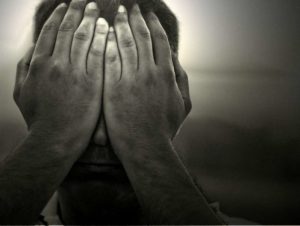 Working with shame is one of the most important emotions to process in therapy. So many presenting problems have an additional underlying layer of shame and this is often why clients still struggle with issues even after they seem to be reconciled. As we address the issue, it’s important to differentiate between guilt and shame. When clients feel guilt, they grapple with something they have done and feel remorse about it. They can often work through this by taking responsibility or doing something proactive. They can apologize or make amends in a variety of ways, and this allows them to achieve a satisfying degree of self-forgiveness and healing. However, feeling shame is not about what you’ve done, it’s about who you believe you are as a person. As you can imagine, this is much harder to reconcile when you feel fundamentally damaged, broken, incompetent or bad. This shame-based mindset profoundly influences all of our thoughts, feelings and behavioral choices. All human beings are vulnerable to feeling shame, but this may be even more complicated for men.
Working with shame is one of the most important emotions to process in therapy. So many presenting problems have an additional underlying layer of shame and this is often why clients still struggle with issues even after they seem to be reconciled. As we address the issue, it’s important to differentiate between guilt and shame. When clients feel guilt, they grapple with something they have done and feel remorse about it. They can often work through this by taking responsibility or doing something proactive. They can apologize or make amends in a variety of ways, and this allows them to achieve a satisfying degree of self-forgiveness and healing. However, feeling shame is not about what you’ve done, it’s about who you believe you are as a person. As you can imagine, this is much harder to reconcile when you feel fundamentally damaged, broken, incompetent or bad. This shame-based mindset profoundly influences all of our thoughts, feelings and behavioral choices. All human beings are vulnerable to feeling shame, but this may be even more complicated for men.
Much has been written about the acculturation of boys and the powerful messages they get about what it means to be “a successful man.” Some of these messages include: always be emotionally strong; handle challenges alone and don’t ask for help; avoid being vulnerable; always exude confidence; be clever and know how to solve problems; be responsible for everything; and self-worth is contingent upon your job and how much money you make. Although these messages are inherently unfair to boys and men, when they “fall short” in any of these arenas, it can be very shame inducing. Part of the challenge is rooted in the fact that the messages that create anxiety, self-doubt, depression, anger, grief and shame are the very same messages that evoke bravado and prevent boys and men from seeking the support and help they need in therapy.
When men live with shame, it breaks the bond that makes attachment, intimacy, and closeness in relationships possible. Shame may be masked by grief or anger, and as those emotional layers are peeled away, there is an opportunity to address the deeper shame dynamic that prevents true healing. The problem is really a systemic one. We must move in the direction of normalizing vulnerability in boys, including the right to cry, ask for help, feel fear, seek and give appropriate physical affection, and not have all the answers. Boys need to be supported in pursuing the things they love, letting go of gender-biases about what’s “appropriate” for them to enjoy doing. As adolescents and adults, they need to be encouraged to seek out therapy when they grapple with trauma, abuse, neglect or other painful experiences. Boys and men need to be given the communication skills that will enable them to freely express themselves, strengthening their emotional IQ’s. If we, as a society, can commit to providing these skills and supports throughout childhood, it would go a long way in ending the seeds of shame that get planted in childhood and then take root in adulthood.
Please share with us your experiences with men and shame.


Over the years I have grown much compassion for men and the shame they carry often isolated and alone. Society tells them to be tough and not be vulnerable, but then they are criticized in their intimate relationships because they aren’t willing to “open up” and be vulnerable. They develop coping mechanisms that often hurt those closest to them. This is a systemic problem that profoundly affects marriages, relationships and the emotional health of children. Thank you for this article that so articulately outlines the problem. You have exquisitely put into words what I have been feeling for a very long time.
Norma, You, too, have given an eloquent voice to the issue! As you suggest, the cultural double-bind for men has profound implications: be strong and macho, but be vulnerable and open is a very hard balancing act for most men and can certainly evoke feelings of shame when they fall short in either arena. Thanks for your great feedback!
Love this! I have been working through being ashamed to show my feelings for a long time. I truly believe that the man that isn’t afraid to be vulnerable is 10 times as strong as the man who is. I recently wrote a blog post about this would love for you to read it! https://mattsdailythoughts.wordpress.com/2016/12/26/32/
Matthew, I love your idea that vulnerability is the greatest sign of strength- because it’s true! Our culture does a terrible injustice to men when the messages they get tell them that it’s not okay to be emotionally expressive. Having raised three sons, I am so sensitive to the idea that men need to be encouraged to freely express their emotions and to reach out to others for support and guidance whenever they need it.